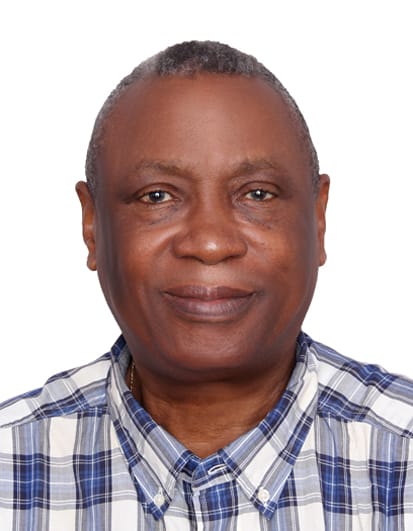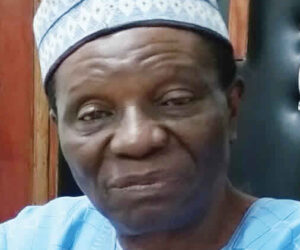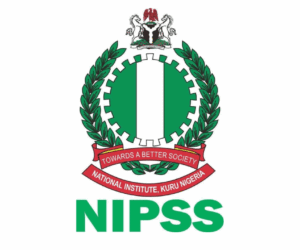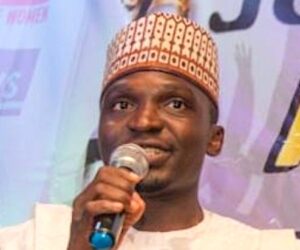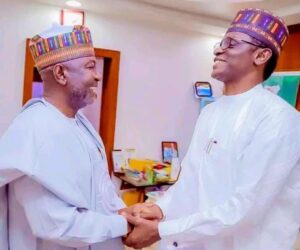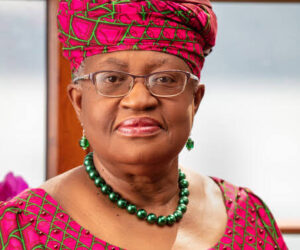
With the death of Dr Victor Omololu Sowemimo Olunloyo (14 April 1935–6 April 2025) and that of the Awujale of Ijebuland, Oba Sikiru Kayode Adetona (10 May 1934–13 July 2025), GCON, Ọgbagba Agbotewole II, the final chapter of emergency rule in Western Nigeria of 1962 has been closed. Historians will have to draw the final curtain on that tragic event. Incidentally, both men died during the emergency rule declared by President Bola Tinubu GCFR, on Thursday 20 March in Rivers state.
Dr Olunloyo and the Awujale served as Commissioners/Ministers during the emergency rule in Western Nigeria under the administration of Dr. Moses Adekoyejo Majekodunmi (17th of August 1916-11 April 2012). He served as administrator of Western Region from 29 June 1962 – December 1962).
The emergency rule in Western Nigeria was effected on 29 May, 1962, when the then Prime Minister, Sir Abubakar Tafawa Balewa (December 1912–15 January 1966), tabled a motion in the House of Representatives in Lagos. The motion was passed by 232 to 44.
Alhaji Sir Tafawa Balewa exercised his new prerogative to appoint his doctor friend, Senator Chief Moses Adekoyejo Majekodunmi, the Minister of Health who still belonged to no party, as administrator. Stanley Wey and others would have rather that for appearances’ sake the administrator had not been so obviously a personal friend of the PM, but they held their peace. Dr Majekodunmi had in fact proposed the then Chief Justice of the Federation, Sir Adetokunbo Adegboyega Ademola (1 February 1906–29 January 1993), but for Sir Abubakar Tafawa Balewa (December 1912-15 January 1966) had commented that this would permanently compromise his judicial position, and on the spur of the moment responded, “What about you?’ The doctor, still determined to see to the opening of the Lagos State Medical College, agreed provided that, to universal inconvenience, he retained his full federal portfolio.
On resumption as Administrator, Dr Majekodunmi appointed Dr Olunloyo and the Awujale, as Commissioners/Ministers. He also appointed Captain Murtala Ramat Mohammed (8 November 1938-13 February 1976), who had just returned from military operations in the Congo, as his ADC. He later became Nigeria’s Head of State between 27th July, 1975 and 13th February, 1976.
They were appointed along with others on 4 June, 1962.
Others appointed as Commissioners/Ministers were Chief SO Adedeji—Chieftaincy Affairs; Mr V Owolabi Esan—Finance; Mr AM Laosebikan—Home Affairs; Mr Abdul Yesufu Eke — Information; Mr WG Egbe—Justice; Mr Olajide Esan — Labour; Chief JO Fagbemi — Lands and Housing; Chief EA Adeyemo—Local Government; Mr BO Mark Uzorka — Midwest Affairs; Mr J Oyegoke — Office of Administrator; SL Edu — Health and Social Welfare and Dr Adegbite — Trade and Industry.
Also sworn-in as Commissioner/Minister was Chief Thompson Adogbeji Salubi (1906-1982), the Akaborode of Urhobo land in the present Delta state. Chief Salubi led the Urhobo Progressive Union for twenty years. He was appointed Commissioners/Ministers for Education.
He also appointed Engineer Adeniyi Williams (1907-1999), the Gboyegun of Oye-Ekiti as Commissioner/Minister for Works and Transport. Mr Adeniyi Williams was the son of Mr. Phillips Williams, a foremost Nationalist, whose cotemporaries included Herbert Macaulay. His classmates at the Cambridge included Justice Adetokunbo Ademola and Sir Francis Akanu Ibiam (29 November 1906 – 1 July 1995), who later became Governor of the Eastern Nigeria. He was also the father of Chief Olufemi Adeniyi Williams (86), a Lagos Socialite and former Managing Director of OBM, a foremost Advertising Agency, who later became Chairman of Island Club, Lagos.
Dr Majekodunmi also swore in Prince Daniel Adeleke Ademiluyi (10 September, 1913-20 September, 1985) as Commissioner/Minister of Agriculture and Natural Resources. Prince Ademiluyi was the son of revered Ooni of Ife, Ajagun Lawarikan, who ascended the throne in 1910. He was an aristocrat from Ile-Ife, the cradle.
Prince Adeleke Ademiluyi was elected to the Western House of Assembly in 1954 to represent Ile-Ife Central. Prince Ademiluyi’s political career saw him appointed as Parliamentary Secretary in the Ministry of Trade and Industry from 1954-1959. He later became Chairman of Western Nigeria Development Corporation from 1963-1966. He was the father of the famous journalist, Prince Kanmi Ademiluyi.
Others appointees were Oba of Benin, Akenzua II, The Osemawe of Ondo, Oba Tewogboye II, the Olubadan of Ibadan, Oba Akinyele, the Olu of Warri, Erejuwa II and the Oluwo of Iwo, Oba S.O. Abimbola. Two Ministers Messrs ST Rufai and F Lamina were appointed to assist in two Ministries including the Ministry of Justice.
The appointment of the Obas was an acknowledgement of the contribution of traditional rulers in Nigeria’s struggles for independence. No doubt, the traditional rulers were involved in pre-independence struggles for Nigeria’s independence like the politicians.
For example, at the London’s Nigeria’s Constitutional Conference on Monday 27 July, 1953, the following traditional rulers attended the conference. The Ooni of Ife, Sir Adesoji Aderemi, the Olowo of Owo, Sir Olateru Olagbegi (1910-1998) -(regional Minister without portfolio), the Obi of Idumuje Ugboko Kingdom in Aniocha North in Delta state, Obi Justin Nkezie Nwoko (1926-1955) and the Emir of Katsina, Sir Usman Nagogo Dan Muhammadu Dikki (1905-18 March 1981), 47th Emir of Katsina.
Others who attended the conference were Chief Bode Thomas, Chief SL Akintola, Chief Arthur Prest, Chief Obafemi Awolowo, Western Regional Minister of Local Government, Chief Rotimi Williams, SO Shonibare, SO Awokoya, Chief Anthony Enahoro, Latifu J Dosumu, Mrs Tanimowo Ogunlesi, GC Nonyelu, Alfred Ogbeyiwa Rewane and Mallam Mudi Sipikin.
Others were Dr Nnamdi Azikiwe, KO Mbadiwe, EO Eyo, Mallam Bello Ijumu, Kolawole Balogun, Mazi Mbonu Ojike, NP Birabi, VA Nwankwo, NN Mbile, LP Ojukwu, EG Gundu, DC Osadebay, Mrs Margaret Ekpo, Chief H Omo Osagie, Chief Yamu Numa, Chief FS Edah, Ahmadu, Sardauna of Sokoto, Abubakar Tafawa Balewa and The Hon. Aliyu, MHR, Makama Bida.
The rest were Abba Habib, Pastor David Lot, Mallam Ibrahim Imam, Mallam Saladu Alamanu, GU Ohikere, Benjamin Akiga, Mohammadu Ribadu, Mallam Dauda Kwoi, Shehu Ahmadu, Sarkin Shanu, Mallam Nuhu Bamalle, Mallam Aminu Kano, Mallam Abubakar Zukogi, EML Endeley, Reverend JC Kangsen, Eyo Ita, AC Nwapa, Okoi Arikpo, JA Wachuku and Dr EU Udoma.
Let’s take a look at the profile of other traditional rulers appointed as Ministers by Dr Majekodunmi as Administrator.
Oba Samuel Omotosho Abimbola was the Oluwo of Iwo between 1958 and 1982. He was one of the most respected Kings in Yorubaland at that time.
Oba Isaac Babalola Akinyele (18 April 1882 – 30 May 1965) became an active member of the Christ Apostolic Church and was, for a long, its head in Ibadan. He also became a chief and thus rose steadily in the traditional hierarchy headed from 1936 by an Oba, the Olubadan. He became Otun Balogun and then, in late 1953, Balogun. Problems were expected because the title had close associations with the traditional Yoruba religion, which make it difficult for a devout Christian to hold it. But the problems were overcome and Oba Akinyele rose steadily towards the Oba’s throne.
Oba Isaac Akinyele was involved in politics, as a party supporter of the Action Group (AG). His political interests conflicted with those of the National Council of Nigeria and the Cameroons (NCNC) which controlled the Ibadan District Council, and its local boss, Adegoke Adelabu. In February 1955, he was elected Olubadan of Ibadan having previously served as Chief Judge.
Oba Akinyele’s rule was soon engulfed in the turbulent political developments in Western Nigeria, the result of the growing rift in the Action Group between its leader, Chief Obafemi Awolowo (6 March 1909 – 9 May 1987) and his deputy and Premier of the Western Region, Chief Samuel Ladoke Akintola (6 July 1910 – 15 January 1966) in 1962. This came to a head when Alhaji Chief Dauda Soroye Adegbenro (1909-1975), the Balogun of Owu and the Ekerin of Egbaland, Chief Awolowo’s supporter, was appointed premier by Governor Sir Adesoji Aderemi, the Ooni of Ife. Disorder broke out in the House of Assembly as the new Premier was presenting his government for vote of confidence and following the subsequent outbreak of violence both among their supporters outside, the Region was placed under a state of emergency. The government was suspended and as sole Administrator of the West was appointed in the person of Dr. Moses A. Majekodunmi.
Throughout the entire political crisis Oba Akinyele remained aloof, placing himself at the disposal of any peace initiative for which Ibadan was a venue on several occasions. He ruled for only ten years but left a big reputation behind when he died in May 1965.
Oba Uku Akpolokpolo Omo n’Oba n’Edo (1889-1978) Akenzua II was born as Edokparhogbuyunmun at Benin in 1899; his father was Oba Eweka II who ruled Benin from 1914 until 1933, and his grandfather the great Oba Ovonramwen who was the last independent King of Benin. He studied at Benin Government School between 1907 and 1915 and later at King’s College, Lagos, from 1918 to 1921. On leaving school, he became employed as a transport clerk in the Benin Native Authority on a wage of N6 per month.
His training for the future office of Oba began when he became confidential Secretary to his father, Eweka II, whose death in 1933 introduced Akenzua II to the rigour of office. Before then, in 1925, he worked under the supervision of the late Alake of Egbaland, Oba Ladapo Ademola II (1872–1962). Following this, he was appointed to head the Ekaidolor District, the present Iyekuselu; he was in this office when his father died. In the same year Prince Okoro was installed Oba of Benin with the title of Akenzua II.
Between 1946 and 1966, the formative years of the new political system in the country, the Oba was a member of the Legislative Council of Nigeria, member of the Western House of Assembly, a member of the Western House of Chiefs and a Cabinet Minister.
Oba Akenzua was instrumental in the creation of the Midwest Region; it was his view that the two provinces of Benin and Delta in the Western Region could constitute the Bendel State by which the Midwest later became known. In October 1953, he formed the Benin-Delta People’s Party to campaign for the Unification of the two provinces. With the creation of the region, he became the first President of the Midwest House of Chiefs in 1964. His contributions to the politics and policies that shaped the content of Nigerian formative politics were rewarded by awards and honours bestowed on him: he was decorated with the insignia of the Commander of the Republic of Nigeria and was made a Justice of Peace. From 1966 to 1972 he served as the Chancellor of Ahmadu Bello University, Zaria.
As the Oba of Benin, Akenzua II was the custodian of the rich Bini tradition and culture whose study and promotion he personally encouraged; it was to this end he volunteered whatever bronze or ivory carvings under his jurisdiction for the success of the Black Arts and Culture Festival, FESTAC, that was held in the Nigeria capital in 1977. He died in the late 1978 and was succeeded by Solomon Igbinoghodua Aisiokuoba who became Oba Erediauwa I of Benin in 1979.
Oba Rufus Adesokeji Aderele (Tewogboye II), son of Oba Tewogboye 1 ascended the throne as the Osemawe of Ondo, after the dethronement Oba Fidipote II. He was an educated Oba, adequately experienced in the system of governance and reigned from 1942-1974. He was the father Prince Ademola Olugbade Aderele; who served Nigeria as Ambassador Extraordinary and Plenipotentiary of the Federal Republic of Nigeria on various missions, including representing the Nigerian Government as its first Nigerian High Commissioner to Thailand.
According to Wikipedia, Ọba Sikiru Olukayọde Adetọna, Ọgbagba Agbotewole II, was born on 10 May 1934, into the Royal House of Anikinaiya of Ijẹbuland in his father’s house in Imupa, Ijebu Ode. His father was Prince Rufai Adetọna Adeleke (born 1902), a son of Ọba Adeleke, Ọgbagba Agbotewole I (1825–1906), who was the Awujalẹ of Ijẹbuland from 1895 to 1906. His mother was Ajibabi Ọnaṣile, who was from the town of Ijebu Igbo. The founder of the Royal House of Anikinaiya (or Anikilaya) was his great-grandfather Oba Anikilaya, Figbajoye Agboogunsa I, (c. 1775–1854) who reigned from 1821 to 1854, and who himself was a son of Ọba Gbelegbuwa. As a member of the Royal House of Anikinaiya, his paternal family claimed descent from Olu-Iwa, the semi-legendary first Awujalẹ and Ọbanta, another founder of the Ijẹbu kingdom.
Prince Adetọna attended various Baptist Schools, Ereko, Ijẹbu-Ode; Ogbere United Primary School, Oke Agbo, Ijẹbu-Igbo; and Ansar-Ud-Deen School, Ijebu-Ode between 1943 and 1950. For his secondary education, he attended Olu-Iwa (now Adeola Odutọla) College, Ijebu-Ode from 1951 to 1956. Between 1957 and 1958 he took up an appointment with the then Audit Department of the Western Region, Ibadan.
The prince resigned his appointment in 1958 to pursue further studies in accountancy in the United Kingdom, which was the colonial ruler of Nigeria at the time.
By a letter dated 4 January 1960, referenced CB. 4 1/333, the Permanent Secretary in the Western Region Ministry of Local Government conveyed to the Local Government Adviser in Ijẹbu Ode approval of the Western Region Governor in Council, the appointment of Prince Sikiru Kayode Adetona as king, and his confirmation as the new Awujale of Ijebuland with effect from that date (4 January 1960). It became the lot of Ijẹbu notables like the late Ọgbẹni-Ọja, Chief (Dr.) Timothy Adeọla Odutọla, Bọbasuwa I, Chief Emmanuel Okusanya Okunọwọ (MBE, KFNM); and Aṣiwaju, Chief Samuel Ọlatubọsun Ṣhonibare, to arrange for the home-coming of the King-elect.
On 18 January 1960, the Head of the Ijẹbu Ode Regency Council, the Ọgbeni-Ọja, Chief Timothy Adeọla Odutọla formally presented the new traditional ruler to the whole world. This presentation, which was a novelty, signalled the commencement of the installation ceremonies of the king-elect. It was indeed, a new dawn in the annals of the Ijẹbu people. The king-elect thereafter proceeded to undergo the traditional seclusion at the Odo for three months.
Oba Sikiru Kayọde Adetọna, who had earlier been nominated along with five others by the ODIS was unanimously selected by the kingmakers in conformity with Section 11 of the Chiefs Law of 1957 applicable in Western Region. The then Governor signed the Instrument of Office approving Prince Sikiru Kayọde Adetọna as Awujalẹ of Ijẹbuland. The formal coronation took place on Saturday, 2 April 1960.
On 5 April 1960, newly crowned Ọba Adetọna took his seat as a member of the Western Region House of Chiefs, after a formal introduction.
Erejuwa II was a traditional title holder and paramount leader of the Itsekiri who was Olu of Warri from 1951 to 1964 and from 1966 to 1986. He was the 18th Olu of Warri Kingdom with the title Ogiame Erejuwa II. He succeeded his father Ginuwa II as Olu. Ginuwa II was a great grandson of Olu Akengbuwa the last Olu who died in 1848, he was crowned in 1936 after an interregnum that lasted 88 years when Warri’s political leadership was dominated by merchant princes.
Erejuwa was born in 1908 as Wilson Gbesimi Emiko, he attended a CMS missionary school at Ogbesse, thereafter he did business with United African Company rising to become a provincial cooperatives president. Warri was the capital township of Warri Province, a colonial administrative unit with Warri Division as a sub-unit consisting of Warri Township, Sapele and Forcados.
The government decision led to protest led by non-Itsekiri groups within Warri Division who feared the title could lead the Olu to lay claim as paramount authority within Warri Division. The title had always been “the Olu of Warri before it was changed to Olu of Itsekiri in 1936 to pacify the Itsekiri neighbours who had always feared Itsekiri domination by their very influential king. But the Itsekiri had used every civilised forum to protest this anomaly until 1952 when the title was reverted to its original status of Olu of Warri.
As Olu of Warri, he was appointed regional Minister without portfolio and president of the Warri Divisional Traditional Council.
Following unhealthy rivalry between prominent Itsekiri leaders in the Action Group and the NCNC in the lead to the creation of a Mid-West region, Erejuwa, who perceived to have backed Action Group, was deposed by the NCNC-led regional government in 1964 and deported to Ogbese. He was re-appointed in 1966 by the new military government of David Ejoor after some of the prominent Itsekiri leaders in the NCNC had been taken out by the emerging military government.
On September 26, this year, President Bola Ahmed Tinubu (GCFR) attended the coronation of the Olubadan of Ibadan, Oba Rashidi Adewolu Akanmu Ladoja (ARUSA I). The governor of Oyo state, Seyi Makinde gave the Oba, the staff of Office. Laudable words were uttered by both the President and the governor on the preservation of the institution of traditional rulers in the country. They are mere words. Traditional rulers have no role in our present-day democracy. Let any of them cross the redline, he will be reminded instantly that he is under a director in the state’s Ministry of Local Government and Chieftaincy Affairs and he will be queried accordingly. That is the sad aspect of our constitution.
An example was when the Central government took action on the Ooni of Ife, Oba Okunade Sijuwade (1 January 1930 – 28 July 2015) and the Emir of Kano, Alhaji Ado Bayero (25 July 1930- 6 June 2014) in 1984. They were restricted to their domain and had their international passports seized by the military government of General Muhammadu Buhari.
This action was taken after the Ooni and the Emir of Kano, Alhaji Ado Bayero, made an unauthorised trip to Israel in 1984, which was against the policy of the military government at the time. They were essentially placed under a travel ban and confined to their respective local government areas for a period of six months as a form of government sanction.
The Deji of Akure, Oba Oluwadamilare Adesina was removed by the then Ondo state governor, Olusegun Rahman Mimiko, for allegedly smacking his wife. Eze of Akaeze, Joseph Okor, was dethroned in 2022 by the Ebonyi State Government for drunkenness; Onojie of Uromi, Anslem Aidenojie was suspended and later dethroned in Edo State, for abusing a woman and showing disrespect to constituted authorities. Baabe Kingdom Chief, Monday Frank Noryea, was removed by the Rivers State Governor for alleged cult-related activities, etc.
While in other countries of the world, the culture of the people is being sustained by the role of their traditional rulers ours has been completely deleted. They are getting numerous with no schedule.
The 1999 Constitution has no role for traditional rulers in the country. This contradicts the 1979 Constitution, which provided a little role for traditional rulers. Section 140 of the 1979 Constitution states that 1. The Council of State shall comprise the following persons, namely—(a) the President, who shall be the Chairman (b) the Vice-President, who shall be the Deputy Chairman ; (c)all former Presidents of the Federation and all former Heads of the Government of the Federation; (d) all former Chief Justices of Nigeria who are citizens of Nigeria; (e) the President of the Senate; (g) all the Governors of the States of the Federation; (h) all the Governors of the States of the Federation; (h) the Attorney-General of the Federation; and (i) one person from each state, who shall as respects that State be appointed by the Council of Chiefs of the State from among themselves.
The legal Drafting Team of THE CONSTITUENT ASSEMBLY between 1978 and 1979 was coordinated by a friend whom I have the greatest respect for, Justice John Hezekiah Omololu Thomas (1925- January 2, 2018). An autographed 1979 Constitution by Justice Thomas is still with me till today.
In the recommendation of THE CONSTITUENT DRAFTING committee of 1975. The President shall consult the Council of States as a body in the exercise of his powers in relation to National population census and Registry, Prerogative of Mercy, Award of National honours, Electoral Commission and such other matters as the President may wish to consult the Council. The members of the Council of States are (1) The President as the Chairman (2)the Vice-President as the Deputy Chairman; (3) former President who did leave office for reasons of dishonesty or Senate impeachment and who for the time being do not suffer any of the disqualifications prescribed for a Senator; (4) former Chief Justice of the Federation who did not leave office for reason of dishonesty and who is not otherwise disqualified if he were a Senator; (5) President of the Senate; (6) Speaker of the House of Representatives; (7) State Governors (8) Attorney-General of the Federation (9) former most senior Grand Khadi ; (10) six other persons appointed by the President, and (11) one traditional ruler from each state, to be appointed by the State Council of Chiefs from among themselves. Persons who are members of the Council by virtue of their former office shall hold office for life unless they are otherwise disqualified.
While the 1979 Constitution gave a little role to the traditional rulers, the 1963 Constitution gave free role to them. Section 41 of the 1963 Constitution states that (41) There shall be a Parliament of the Federation, which shall consist of the President, a Senate and a House of Representatives. (42) —1. Without prejudice to the provisions of section 46 of this Constitution, the Senate shall consist of—- twelve Senators representing each Region, who shall be selected at a joint sitting of the legislative houses of that Region from among persons nominated by the Governor; four Senators representing the Federal territory; c. four Senators selected by the President, acting in accordance with the advice of the Prime Minister. (2) The Senators representing the Federal territory shall be (a) the Oba of Lagos, who shall be an ex-officio member of the Senate; (b) a Chief selected in such manner as may be prescribed by Parliament by the White White-Cap Chiefs and War Chiefs of Lagos from among their own number; and c. two other persons selected for that purpose in such manner as be prescribed by Parliament. (3) A joint sitting of the legislative houses of a Region may regulate its own procedure for the purposes of this section. 43. Without prejudice to the provisions of sections 47 and 88 of this Constitution, the House of Representatives shall consist of three hundred and twelve members. 44. Subject to the provisions of section 45 of the Constitution— (a) a person shall be qualified for selection as a Senator if he is a citizen of Nigeria and has attained the age of forty; (b) a person shall be qualified for election as a member of the House of Representatives if he is a citizen of Nigeria and has attained the age of twenty-one years.
In the past traditional rulers served in the government as legislators or as Commissioners or even as Governors. A case in point was that of the Ooni of Ife, Sir Adesoji Aderemi (15 November 1889 – 3 July 1980), who was the only traditional appointed governor.
Oba Titus Martins Adesoji Tadeniawo Aderemi (Atobatele I), (15 November 1889 – 3 July 1980), was the Ooni of Ife from 1930 until 1980. He served as the governor of Western Region, Nigeria between 1960 and 1962.
Sir Adesoji Aderemi was known as a wealthy man and had a large family of many wives and children. One of his children was Princess Tejumade Alakija (17 May 1925 – August, 2013), who later became the head of Service of Oyo state.
During the colonial era, the Ooni gained a considerable amount of power due to the colonial policy of indirect rule and being labelled a first class Oba among traditional rulers in Yorubaland. The policy of indirect rule was used to ensure native awareness and consultations about colonial policies affecting the regions. The British leaned on existing native political structures and hierarchy, particularly the Nigerian traditional rulers, for political consultation and tax collection. Later on, the Ooni with the consent of the leading Yoruba political leaders used his position to close the gaps of exploitation of divisional differences among Yorubas and tried fervently to rally the Yoruba towards a common goal.
In 1962, the king acting as governor, used his power to remove the premier of the region, sensing the premier did not have the support of the majority members of the House of Assembly. The event escalated the political rivalries in the region.
As we contemplate on our never-ending attempt to amend the Constitution, the nagging question is whether or not to give the traditional rulers any role at all. No doubt, the 1999 Constitution has deleted any role for them. Should we continue to allow them to remain idle in their palaces, occasionally attending social events or give them some roles.
Definitely they represent a part of our past.
Many of them are highly educated and wealthy, but because of constitutional limitations they are idle and suffering in silence. Worse still, the greedy and selfish politicians we have don’t want to share power with them. So they are not likely to amend the constitution to give them certain schedules.
What should we do with them?
Should we continue to pretend that they are still relevant?
Eric Teniola, a former director at the Presidency, wrote from Lagos.

